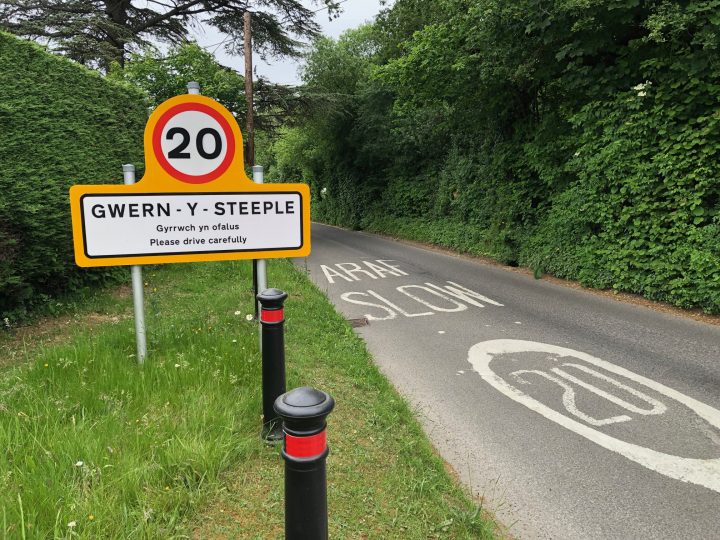Speeding convictions and fines will rise this autumn in Wales after the new default 20mph limit is introduced and Welsh Government ordered the removal of warning repeater signs and funded more camera vans.
Existing 20mph repeater signs put up since 2016 and soon-to-be illegal 30mph repeater signs will be taken down, offered to English authorities or recycled as scrap. Wales is the first part of the UK to introduce a default 20mph limit.

Answering a Freedom of Information request from WheelsWithinWales, the Welsh Government said 20mph repeater signs will not be permitted on the newly reclassified roads and councils will have 12 months to remove them.
The precise number of signs to be taken down, both 20mph and 30mph, is unknown but realistically will be tens of thousands, and changes to the signage and markings has a budget of £26.7Million.
Wales will also be exporting its redundant signs to any English authorities who want them and unsuitable signs recycled.
In February, Welsh Government confirmed it’s allocated £10M this year to implement the new lower limit, five times that spent the previous 12 months and in April said it had funded extra Go Safe camera vans with £35,000 to enforce 20mph pilot schemes. Now, an additional £80,000 is set aside for enforcement in the next financial year with £2.5M to cover running ticketing offices in Wales.
Welsh Government claims the new lower limit would save lives have been debunked by studies in Queens University, Belfast, Edinburgh University and University of Cambridge which found the 10mph reduction had little impact on road safety.
Local authorities can apply to waive the new 20mph limit if they or residents’ feel it’s unsuitable for a particular stretch of urban road but they are being encouraged to stick to the new lower limit by Welsh Government.
The new pilot limit was lifted in some places in Wales where it led to congestion.
It has been described by Welsh Conservatives as one of a number of “vanity projects” and they want the money spent on road resurfacing improvements instead which could also lead to reductions in road injuries and deaths.
According to Wales-based Confused.com car insurance, drivers who have points on their licence as a result of speeding may have to pay up to £751 for insurance.
“If you have a driving conviction or have been disqualified from driving, insurers assume that you’re more likely to take risks when you drive. So insurers think you have more of a chance of being involved in an accident which can increase your car insurance costs.
It says a conviction for exceeding the limit on a public road brings about an average annual insurance premium of £630 with at least three points and they are valid for four years.
This week, Labour’s Minister for Transport Lee Waters faced questions from Welsh Conservative Shadow Transport Minister Natasha Asghar over Labour policy of imposing a blanket 20mph speed limit on roads in Wales. This policy has faced significant backlash from across Wales, with 21,000 people signing a petition against it, as well as facing a lot of criticism on Social Media.
Commenting on her spokesperson questions, Welsh Conservative Shadow Transport Minister, Natasha Asghar MS said, “The people of Wales strongly oppose the implementation of default 20mph speed limits. However, the Labour Government refuse to listen.
“The Labour Minister appears incapable of considering the broader consequences of these policies. Commuters, families and even bus passengers will suffer due to these measures and it is evident that Labour shows a complete lack of concern.
“Its implementation will adversely affect people’s daily lives, making their journeys longer and more difficult. Astonishingly, even the Labour Government’s own explanatory memorandum to the bill acknowledges that this policy will impose a staggering cost of £4.5 billion on the Welsh economy.”

